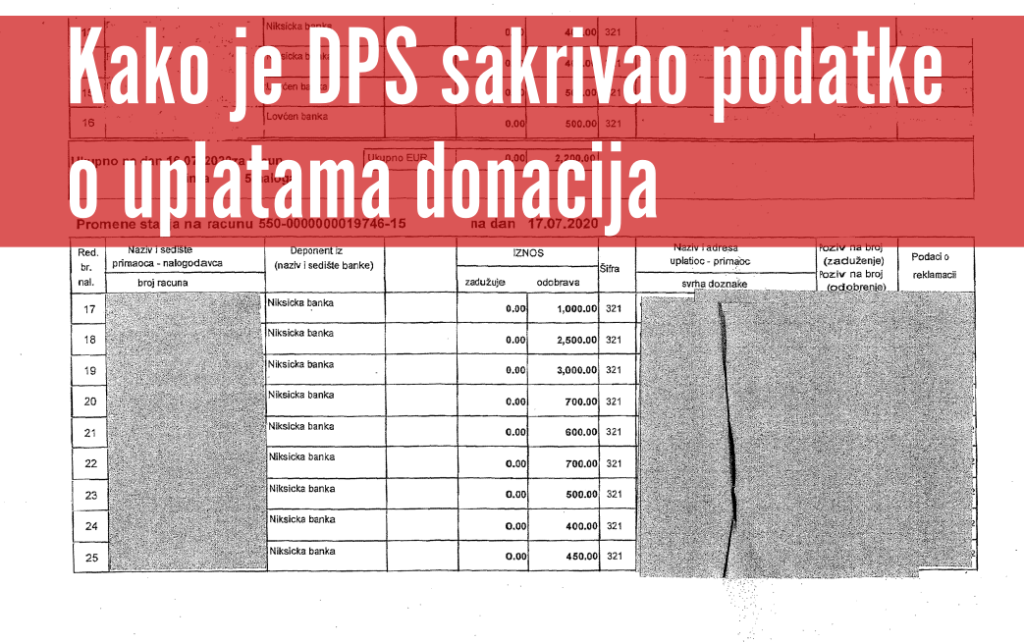In its reaction to the MANS’ investigation, the Democratic Party of Socialists (DPS) did not deny any of the facts we presented, but on the contrary, further confirmed that it does not want any civic control over the transparency of its finances, except for the one carried out by the state institutions which this party has captured for years with its political interests.
Data on inflows and outflows from the election account provided by DPS to MANS under the Law on Free Access to Information were deliberately made unusable so that independent control of what the party officially reported as inflows and outflows paid from that account could not be carried out.
The right to privacy invoked by DPS in an attempt to justify the intention to hide absolutely everything about its finances, cannot apply to party donors during the election campaign because it is an inalienable right of citizens, even those who choose the DPS as the best political option, to know from what, clean or dirty funds the work of the political party is financed.
The right to privacy cannot apply to legal entities that did business with DPS, either as suppliers or potential donors, and whose information this party deliberately concealed.
Finally, the right to privacy cannot refer to the spending of funds from the budget, other than in exceptional cases, and certainly not when it comes to funds that finance the work of political parties.
This is all the more so because DPS has a rich history of violations of the Law on Financing of Political Entities, but also of the Criminal Code in the part that refers to violations of freedom of choice in voting. Starting from the “Snimak” and “Postman” affairs, through “donors” from Vrela Ribnička, all the way to the “Envelope” case, we had the opportunity to see very clearly how DPS collects money for its work.
The first man of that party, Milo Đukanović, confirmed that DPS is financed from funds that have not been reported to the competent institutions, stating that “Duško Knežević is not the only one who financially helped DPS, that those funds are recorded in the party’s accounting reports, and that reports were submitted to the state authorities as requested by those bodies.”
This statement alone was enough for the Special State Prosecutor’s Office to pay a visit to DPS and launch a comprehensive financial investigation into all the company’s “business partners”, how the business relationship with DPS helped them in state tenders and finally, how DPS paid for such donations.
DPS cites as the ultimate confirmation of its correctness the positive reports from the State Audit Institution (SAI) and the Agency for Prevention of Corruption (APC), the institution into which this party audaciously installed its pawns. Starting with the senator of the APC, Zoran Jelić, the creator of the famous “one job, four votes” deal, all the way to Sreten Radonjić and Jelena Perović, who turned APC into a service of DPS.
That is why it is important that the public has unhindered access to all information on the finances of political parties, especially the part related to the financing of the election campaign, which is most sensitive to corruption, influence peddling, ‘dirty’ funds and mass violations of electoral rights.
MANS



